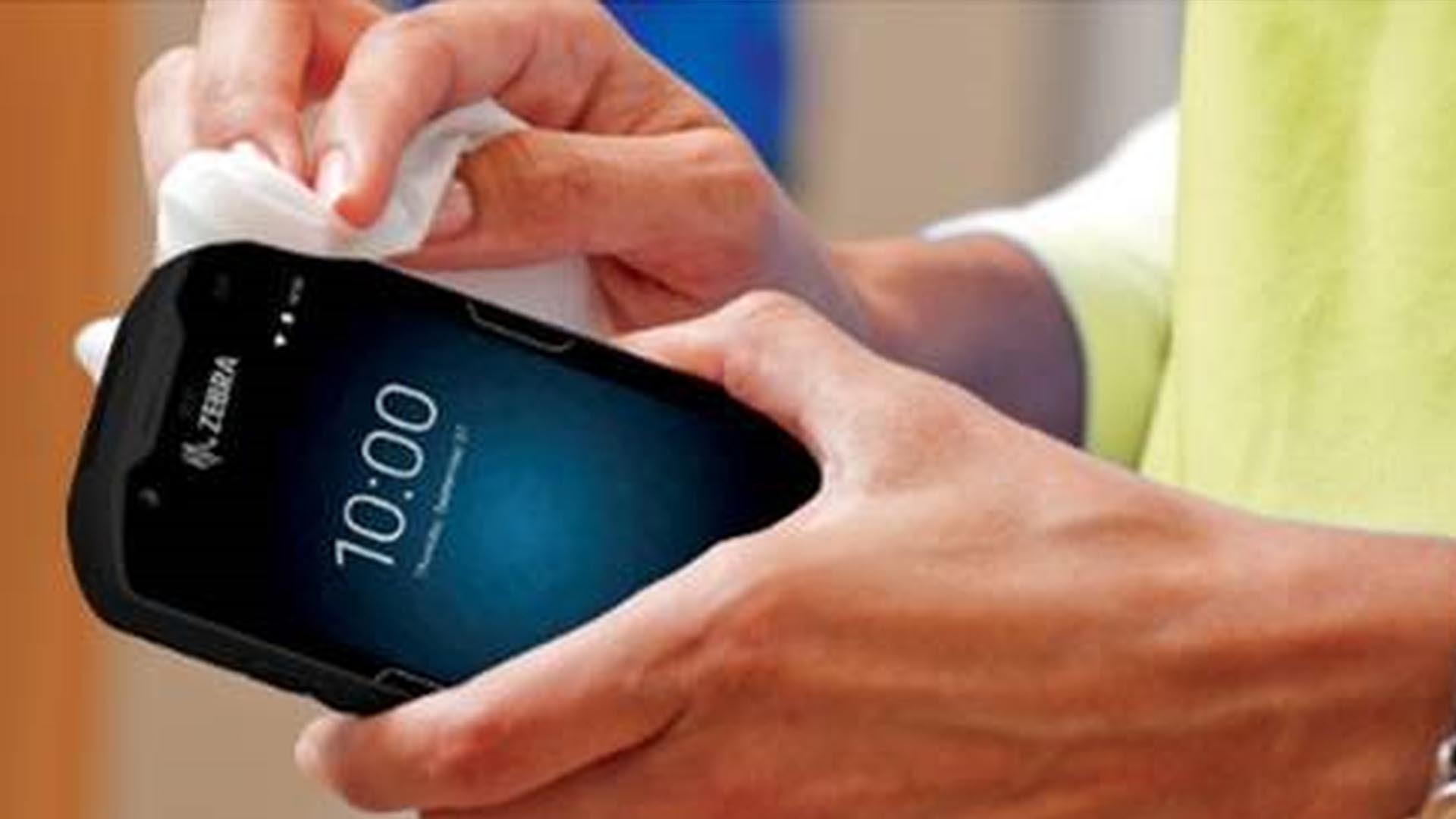As COVID-19 cases continue to rise in the Philippines, only essential retail businesses like supermarkets, convenience stores and pharmacies are still allowed to operate albeit at a higher level of cleanliness and hygiene.
To ensure the safety of customers, frequent sanitization of retail facilities has become a necessity. However, the disinfection of devices used by their front line staff is equally important, when it comes to curbing the spread of the virus.
For retailers, devices that need regular cleaning and disinfecting include point-of-sale equipment, tablets or mobile computers, and receipt and label printers used by store associates. It would be counterproductive to expect front-line staff and store associates to wash their hands multiple times a day but only to touch a dirty device immediately afterwards.
Mobile devices become contaminated with bacteria from the constant handling by staff. According to a whitepaper on devices used in healthcare, a typical mobile device has 18 times more bacteria than a public toilet door handle.
So how should retailers properly clean and disinfect their devices without damaging them? Here are some of the best practices:
Disinfection Vs Cleaning
With so many people touching devices like the point-of-sale equipment in stores, proper cleaning and disinfection of surfaces need to be observed. It’s not enough to just clean the glass components or the surfaces of buttons. Supermarkets, pharmacies and convenience stores must thoroughly disinfect the plastic parts as well such as the housing and the nooks and crannies to prevent the transmission of contagions.

Optimal results can often be achieved with the use of a microfiber cloth. Microfiber cleaning products can remove up to 98 percent of bacteria and 93 percent of viruses from surfaces by using clean water.[iii] Yet, simply wiping down a device is not enough. Even when fingerprints are cleaned from a device, the surface may still be covered with bacteria. So, unless the right disinfectant is used, the device may not be completely safe for usage again.
Health experts emphasize the 5:1 rule of thumb or ratio for cleaning and disinfecting devices. This means that a device should be disinfected with a microfiber cloth at least five times after the device has been cleaned at the beginning of the workday. Users should also consider using disinfecting equipment with approved disinfectants based on the device, coupled with a regular cleaning schedule.
Implementing Immediate Disinfecting Processes
Contrary to popular belief, the best disinfectant is not always those that are alcohol-based. Depending on the device and its usage, other forms of cleaning agent can also include sodium hypochlorite, hydrogen peroxide or even mild dish soap.
Therefore, it is important for users to refer to the official sources of their devices to understand which cleaning agents are safe to use and the best way to clean their devices with. Otherwise, using the wrong cleaning agent may have a harsh effect on the devices, especially on their plastic casing.
It is recommended that retailers implement a device cleaning policy as soon as possible by referring to the original suppliers’ guidelines. This will help ensure that their front-line staff can properly disinfect their devices regularly. In addition, it will reassure store associates that the necessary steps are taken to prevent any shared technology devices from becoming a potential source of virus transmission.
Lastly, it is important to implement precautions and best practices for handling devices during the cleaning process to ensure the safety of both the front-line staff and customers.





















